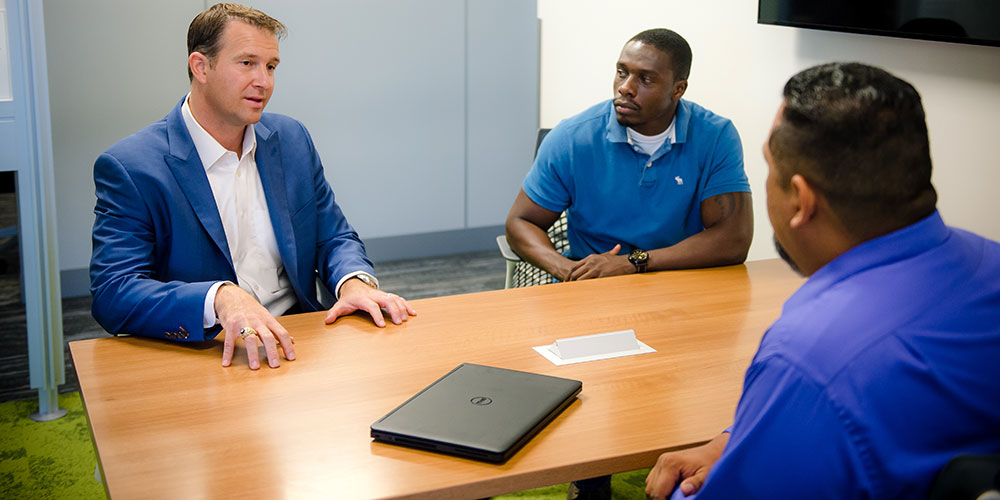Learn from Those Who Have Walked in Your Shoes Before
Searching for a job isn’t easy work; and if you’re transitioning from a military career to a civilian career, it can pose unique challenges, such as translating military experiences. We recently connected with veterans who successfully navigated the waters from their military careers to a civilian career with Dell. We asked them what they would tell other veterans currently seeking new career opportunities.

Brad Johnson, Senior Director, Federal Services Lead, Global Services, Navy
“First, I’d thank you for your service. Make sure that when you look at a company, you ask about the veteran support programs. Don’t limit this to hiring, look at mentoring, advancement and peer programs for veterans.
“Your leadership skills, your technical skills, your crisis management skills, all of these things are so transferrable to the work that we do at Dell. When I talk to hiring managers, sometimes they ask, ‘Should I consider a veteran for this position?’
“I’ll ask about the position. Typically, the hiring manager will say something like this: ‘It’s a very high-stress position and you’ve got to work together.’
“I chuckle as I share that veterans have done all of that, but they’ve done it, in 110-degree heat, underneath the Polar ice cap, at 600 Sea State 7 on the Atlantic Ocean or 30,000 above in the air. Stress is nothing new to a veteran.”
Kim Tully, Program Change Management, Army, Texas National Guard
“I recommend reaching out to contacts at Dell and trying to understand what to expect on a daily basis. Cultivate that network. Your problem-solving abilities and the way you might break down difficult situations or challenges will serve you well. Emphasize your wonderful teamwork and collaboration skills.”
Greg Martin, Director, IT Business Partner Lead, Army
“Go for it, first and foremost. The experiences and the resources that we attain from military experience are both tangible and intangible. It’s very important to take advantage the GI Bill and the college education benefits that we earn as members of the military.
“From there, think about some of the intangible benefits; the leadership that we attain and some of those real-life experiences that other people don’t have. Leverage those experiences, apply them and most importantly, seek somebody that has spent time in the military and spent time in the corporate world to help you translate some of those intangible things that you’ve attained.”

Ray Lipsky, Senior Vice President of Global Sales, Data Protection Solutions, Marine Corps
“Some of the best advice I got when I left the Marine Corps was to find a company where you fit the culture. I knew that Dell had a legacy of high performing, fast paced, great products, good company, where people take care of each other. That’s really what drew me to the company at the time.
“One of my goals within my role and with our team is to try and find more veterans. The ability to bring on men and women that have the military work ethic, that want to be a part of something bigger, is something that I look for and our other leaders look for.”
Find out more at https://jobs.dell.com/military.